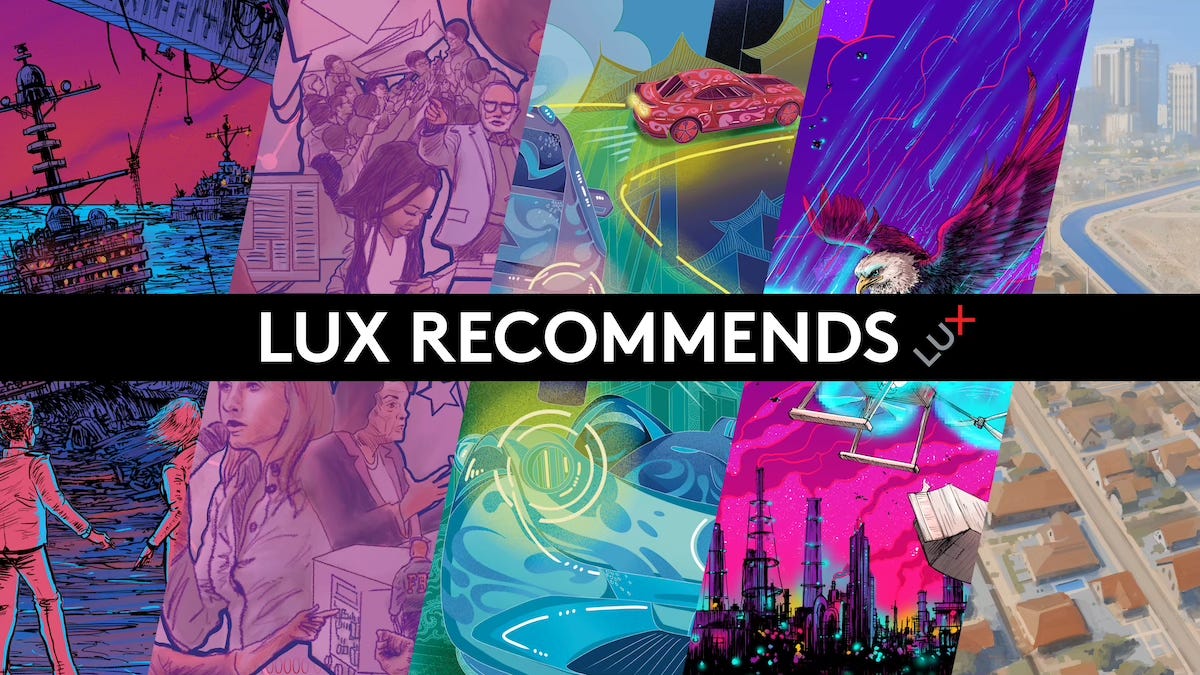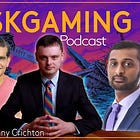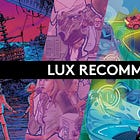Nutella vs. El Mordejene, Kurt Vonnegut, and David Baltimore. Plus open secrets.
From Lux Capital
This week, Lux’s Josh Wolfe went on Odd Lots to discuss what’s overrated in the AI space, what’s underrated, and the threats to Silicon Valley’s “social contract.”
Josh also spoke to Andy Serwer at Barron’s on investing in science, China, and the state of venture capital today.
Broadly, venture is one of the most cyclical industries there is. And we always say at Lux, we believe before others understand. But once we believe and then others understand, and then there's a bubble in some space, you either get out or you don’t. But the history of venture is every 10 or 15 years, there’s some secular wave in some area of technology.
In portfolio news, Cognition, the maker of Devin, the first AI software engineer, has reached a $10 billion valuation after its latest round of funding. Nozomi, an innovative cybersecurity company, has announced an acquisition by Mitsubishi Electric in a deal valued at $1 billion. And Varda, which aims to build and launch a space-based factory, and Anduril, the defense tech giant, were profiled in a New York Times article on Trump’s quest to build an “Iron Dome” for the United States.
Fortune likewise profiled Ramp, the fintech startup, which announced that it has crossed $1 billion in annualized revenue, while biotech firm eGenesis just got the green light from the FDA to start conducting human trials using kidneys from its gene-edited pigs. Finally, health startup Mendaera announced that doctors had successfully conducted the first procedures with its handheld robotic system.
From around the web
1. Goodbye, David Baltimore
This week, David Baltimore, the Nobel Prize–winning molecular biologist, died at 87. Lux’s Thomas Reardon shared his thoughts:
There are scientists with unique insights (the inventors), and there are scientists who are great organizers of insights (the encyclopedists). And then every once in a while, there is one who is both, like Feynman in physics and Baltimore in molecular biology.
For more on his work and its impact, the obituary in Ars Technica is well worth a read.
2. Bad science
Our scientist-in-residence Sam Arbesman recommends Noah Hawley’s re-examination of Cat’s Cradle, specifically how Kurt Vonnegut’s wartime experiences and the dropping of the atomic bomb shaped his understanding of scientific responsibility and human morality.
In some ways, Little Boy was the ultimate invention of the Industrial Age, which ended a few years later. What replaced it? The Atomic Age, of course, followed in the 1970s by the Information Age. Were Vonnegut alive today, he might say that whatever they call the age you live in is actually the name of the weapon they’re using to try to kill you.
3. Blind ambition
On the topic of willful ignorance, I enjoyed Sergei Lebedev’s writing in Liberties. His deeply personal essay marches through Russia’s colonial history and shows how turning a blind eye toward that history enabled the war in Ukraine.
We watched television every weekend: news of the week and analytical reports. War was on the screen: standard gray apartment buildings, which looked like the ones across the street, destroyed by artillery fire, a burned trolleybus, again familiar to us. Visually this was the Soviet universe, Soviet space delineated in a familiar way. You would think that these recognitions would serve as a baseline for empathy — we lived in the same kind of house, we rode the same kind of trolleybus. But we watched the war news in silence, not grim, not anxious, just alienating. I do not remember a single discussion or a single emotional cry about what we were seeing. The only thing my parents seemed to worry about were my school grades. Now I understand that they were already thinking that I had to go to college in order to avoid the draft.
4. Spread thin
Sometimes, geopolitics isn’t quite as heavy, and in the case of Algerian-French relations, tensions last summer came down to one thing: hazelnut spreads. Writing in The New Yorker, Lauren Collins covers the spat between Nutella and Algerian competitor El Mordejene. H/t Laurence.
Nutella, in other words, was Mamma, the motherland, the unchanging womb of everything warm and good. The El Mordjene affair went much deeper than a wacky food fight or an abstruse trade dispute. It wasn’t really about hazelnut spreads. It was about nostalgia, memory, injustice, nationalism, globalization, decolonization, protectionism, racism, identity, immigration, invasion—the same things that all arguments are about nowadays, transposed to the realm of spreadable snacks. The corollary to the question “What kind of world would it be without Nutella?” is “What kind of world would it be with El Mordjene?”






